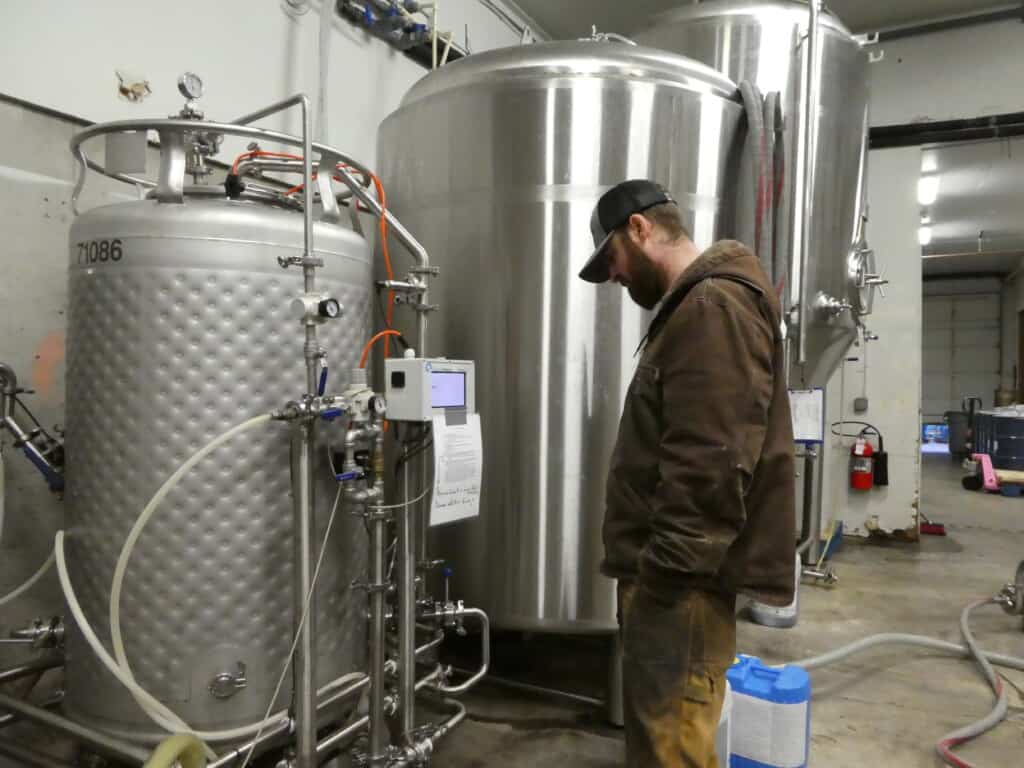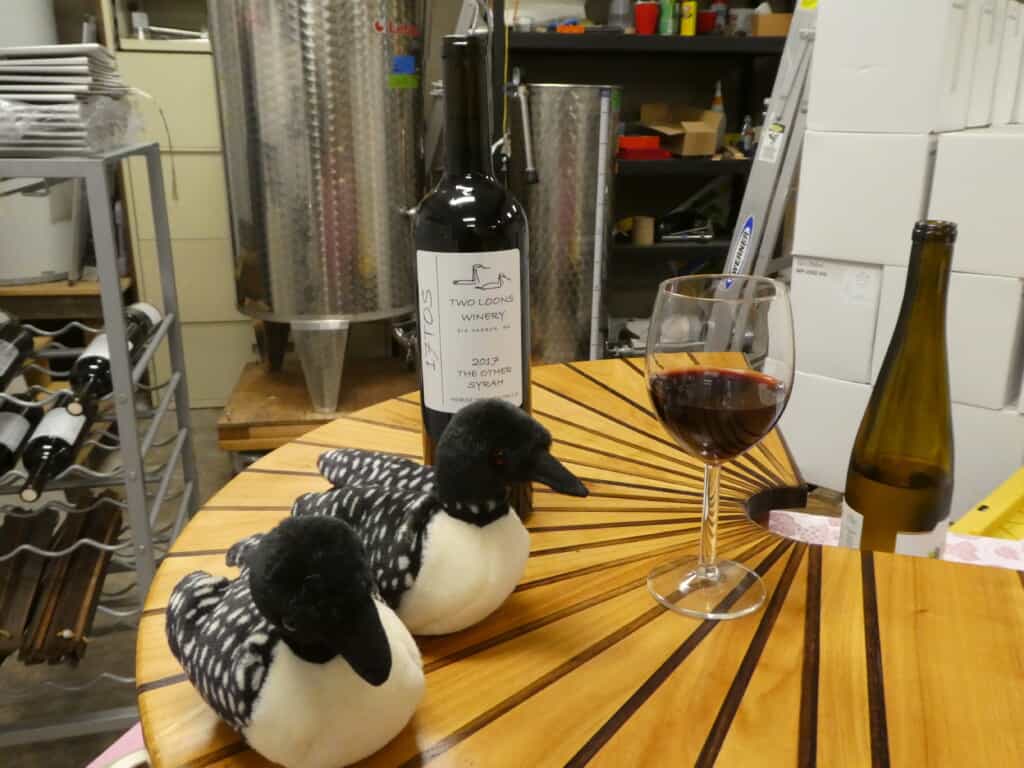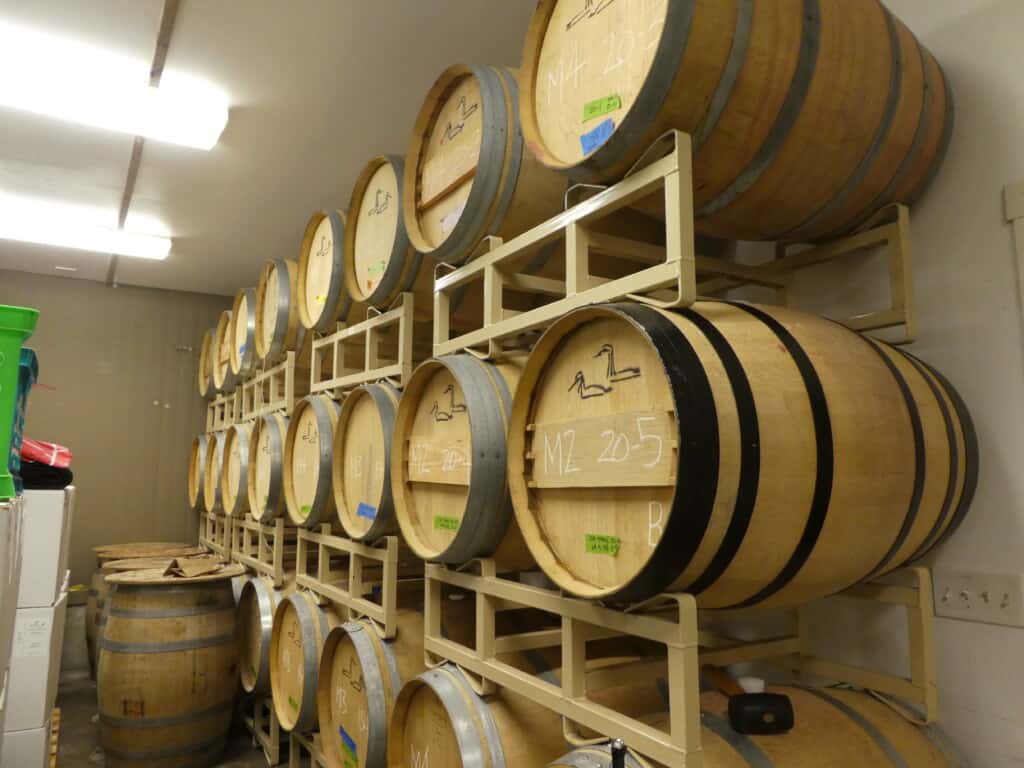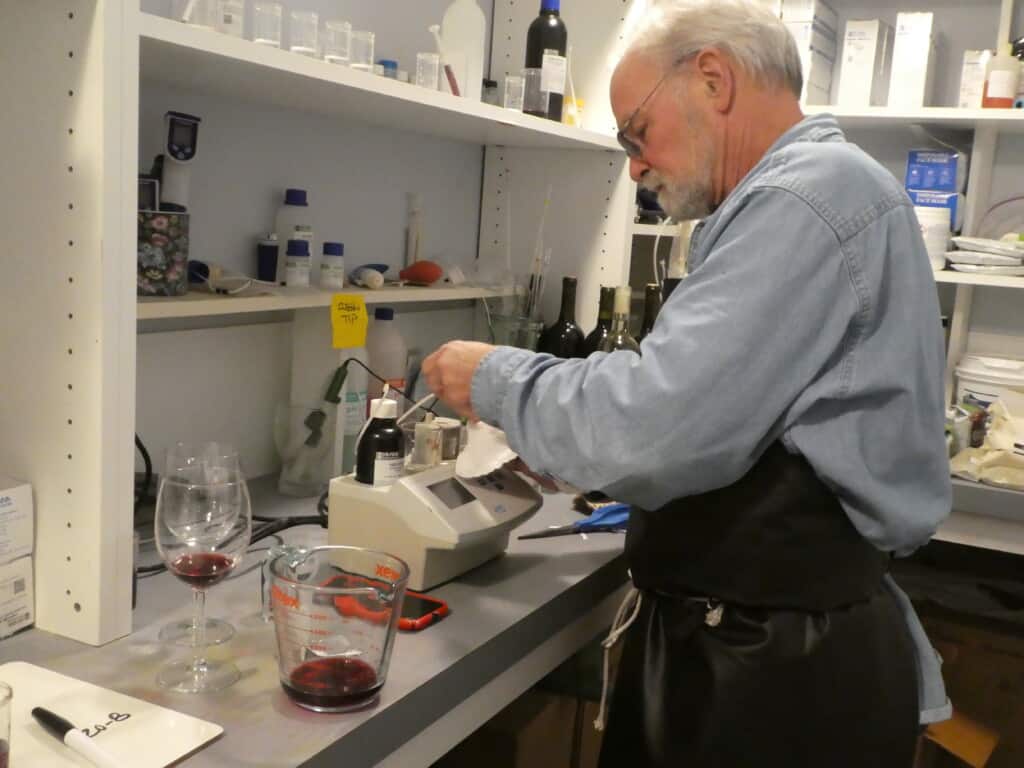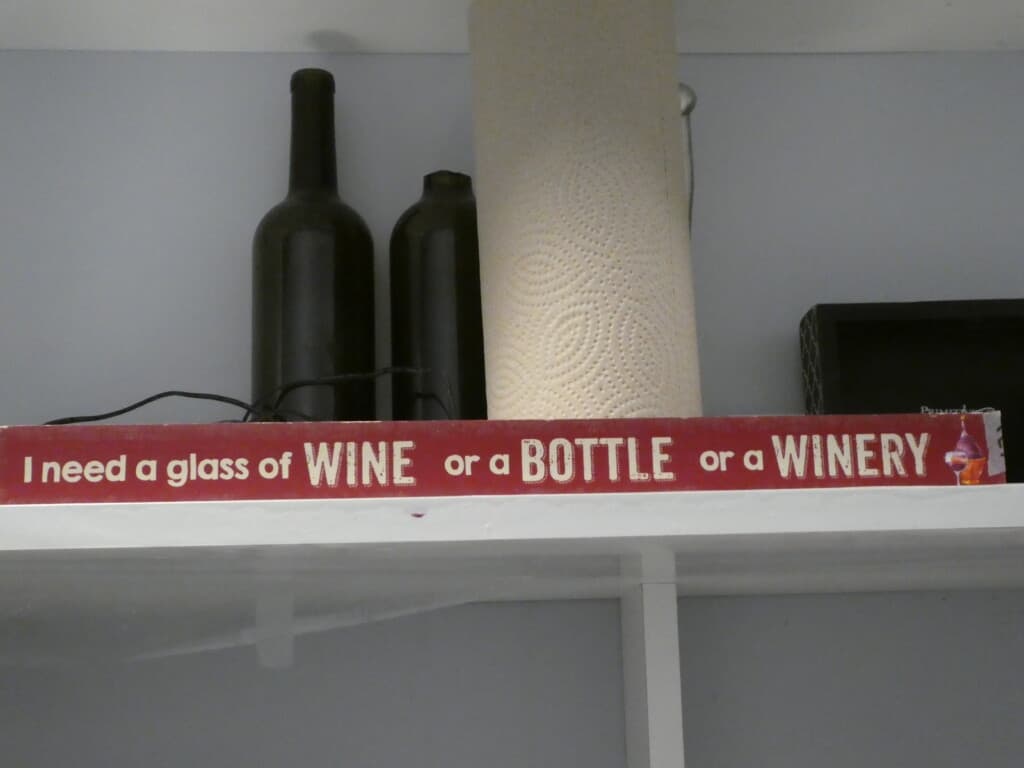Arts & Entertainment Business
Local cidery, winery offering expanded drink choices
Wine lovers and cider-sippers, take heart. Options for locally produced libations have expanded in recent months.
Locust Cider opened in June at the site formerly occupied by Heritage Distilling, next to the Inn at Gig Harbor. Two Loons Winery has been maturing in an east-side garage for several years.
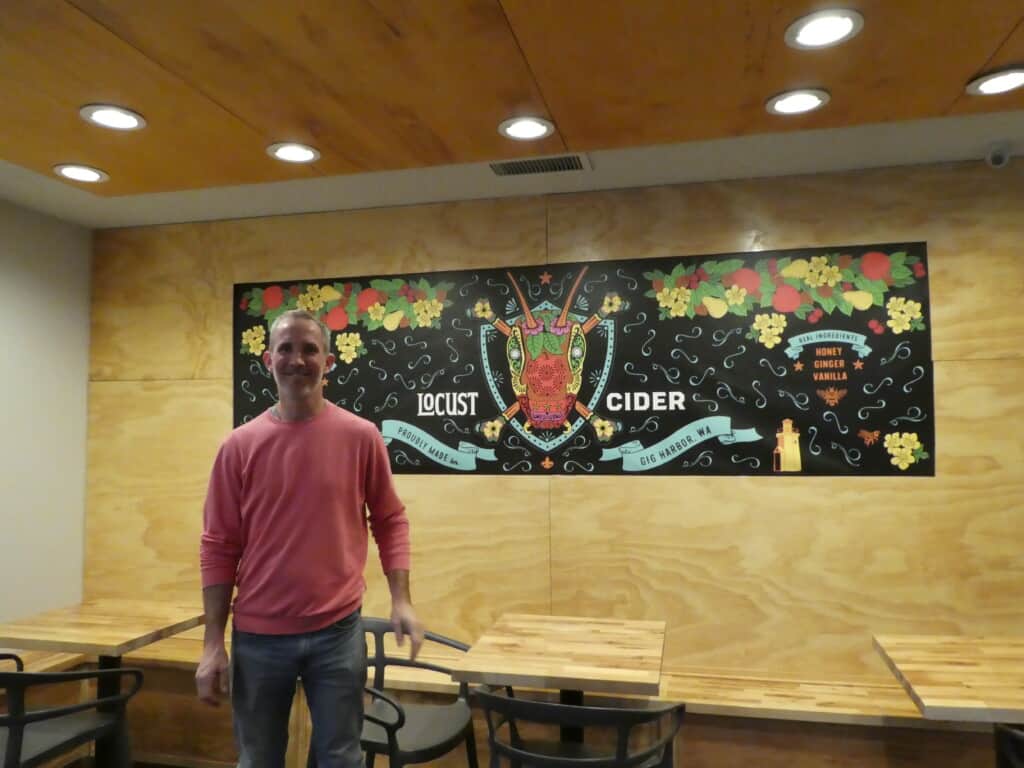
Jason Spears, who owns Locust Cider with wife Rebecca, stands in a soon-to-be-opened taproom. Charlee Glock-Jackson / Gig Harbor Now
Owned by now-Gig Harbor residents Jason and Rebecca Spears, Locust is now producing all of its ciders here and will soon open a small, indoor taproom. Next spring, a large, covered and heated outdoor space and an on-site kitchen will be added.
Until this summer, all Locust Cider products were produced at a facility in Woodinville.
“But we outgrew that space and needed a lot more room to grow,” said Rebecca Spears. “When we found Heritage’s old space, we knew it would be perfect.”
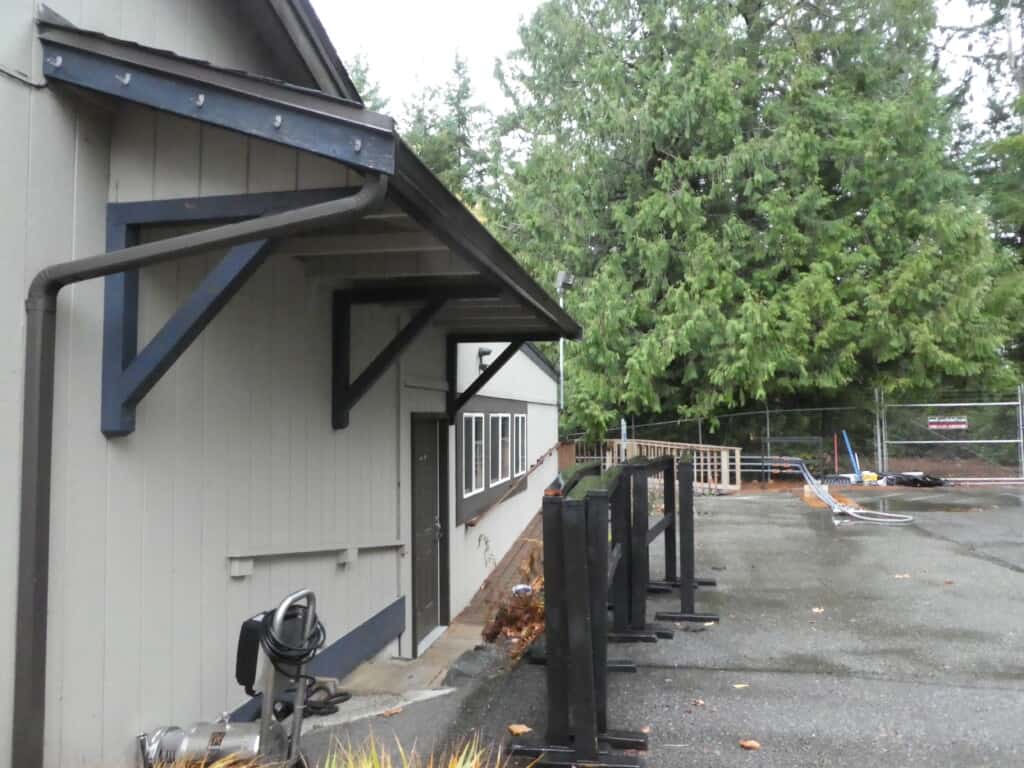
Next spring, a large, covered and heated outdoor space and an on-site kitchen will be added. Charlee Glock-Jackson / Gig Harbor Now
Like most ciders, Locust is apple-based. All the juice comes from the Yakima Valley. They use only culls — apples that don’t make it to commercial distribution, usually because of less-than-perfect appearance.
“They press the juice over there and ship it to us in big tanks,” she said.
In the cidery, wine yeast is added to the apple juice, which is blended with other juices to create their “core flavors” — dark cherry, vanilla bean, honey pear and cold-pressed apple. On any given day, there might also be a special blend in the works such as mojito in the springtime (with fresh mint and a hint of lime juice), watermelon in the summer, rosemary picked from bushes outside the cidery or locally grown lavender infused with honey and Meyer lemon.
There are also special holiday blends such as dark maple — a blend of dates, brown sugar and maple that’s “lovely either hot or cold,” and winter warmer that’s infused with cinnamon and comes in at 8% to 9% alcohol by volume.
“Cider is basically made like wine, but with less alcohol, so people drink it like beer,” Jason Spears said.
The finished cider is carbonated, canned in 12-ounce cans and packaged in four-packs. It’s sold by the four-pack and by the can at local outlets such as Harbor Greens, Costco and Safeway.
The cidery buys cans whenever they’re available because of supply chain issues.
“Things were really hit hard by COVID and now aluminum cans cost about twice as much as they did before,” Jason said.
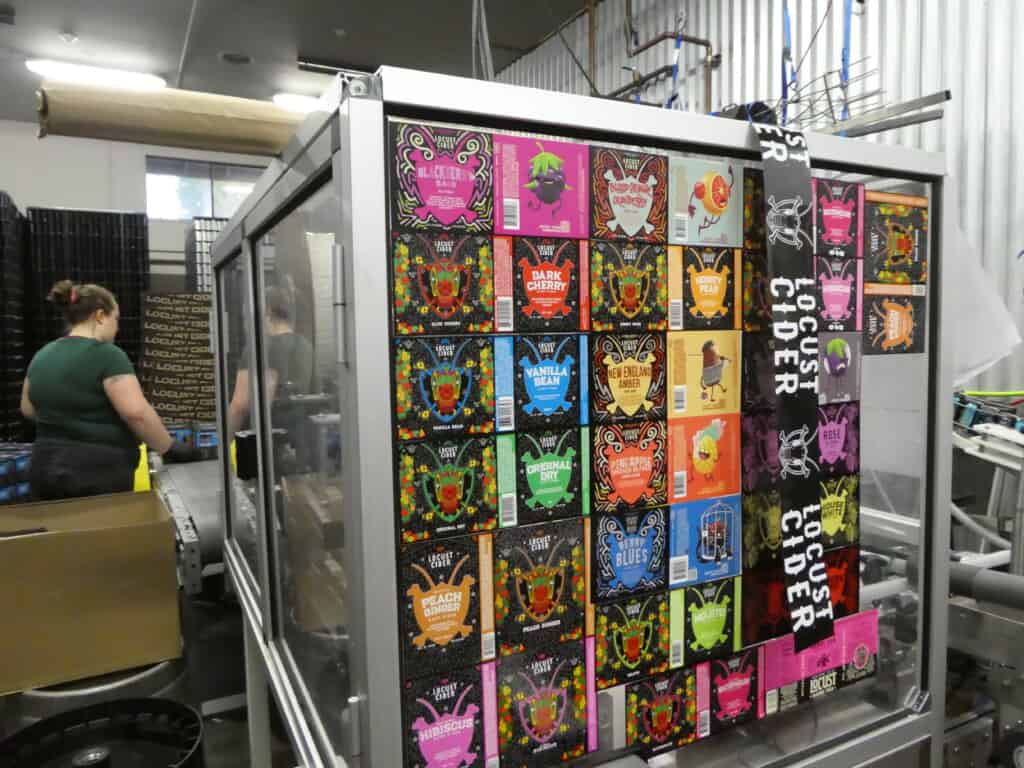
The finished cider is carbonated, canned in 12-ounce cans and packaged in four-packs. Charlee Glock-Jackson / Gig Harbor Now
Even the apple supply has been affected by labor shortages at the packing houses and a short harvest season this year, he added.
The cider idea came from a friend. Jason has a hops allergy “… so I can’t drink beer, and I was looking for an alternative. A friend shared some cider with me and it really hit the spot,” he said.
The company’s name, Locust, pays homage to a life-changing moment Jason Spears had when he was lying, severely injured, on the side of a Texas road, hoping for help after being beaten up. The sound of the locusts buzzing in the grass kept him focused. So to the Spears, the name symbolizes rebirth, endurance, strength and courage.
A portion of every sale goes to the Hydrocephalus Association because the Spears’ young daughter lives with the incurable brain condition.
Two Loons Winery
Peter Knecht and Mike Simpson became interested in making wine as a hobby back in 2003. Simpson, an engineer at Peninsula Light Company, didn’t drink wine, but his wife occasionally did, so he researched on the internet how to make it at home.
The winery is in Knecht’s garage on the east side of town, and is outfitted with stainless steel tanks, oak barrels, a lab and bottling gear. They use only Washington-grown grapes from east of the mountains.
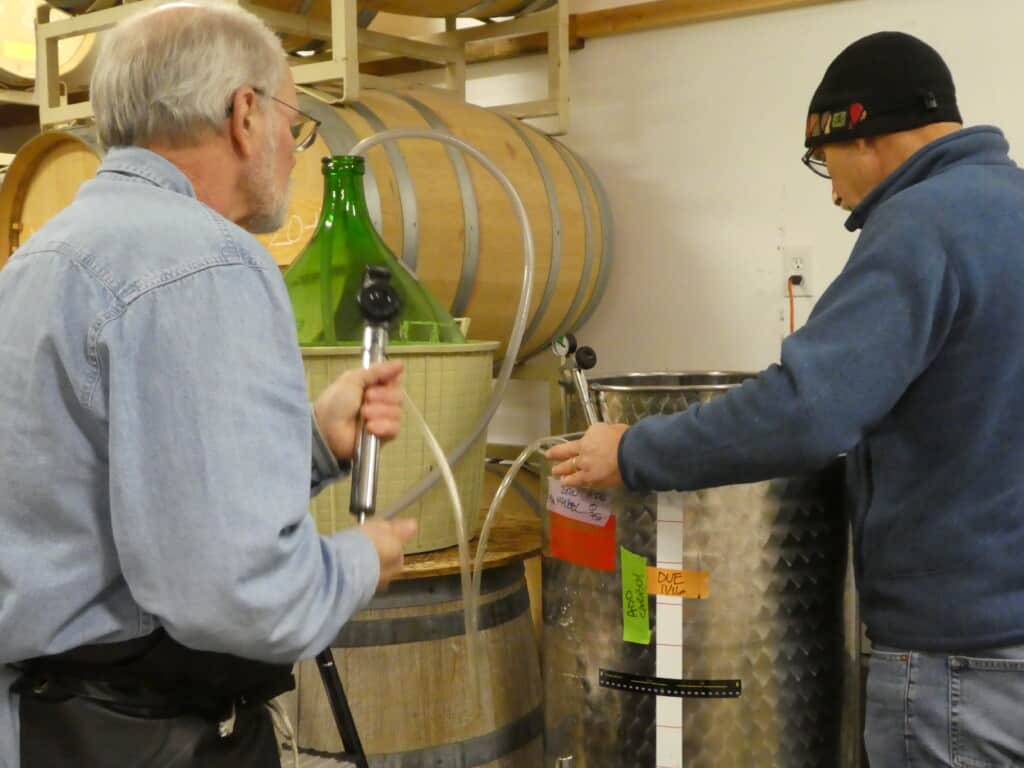
Two Loons Winery owners Peter Knecht, left, and Mike Simpson topping the wine. Charlee Glock-Jackson / Gig Harbor Now
“The first year my daughter and I picked all the grapes by hand,” Simpson said. “Then I happened to meet a guy at a wine-tasting bar over in Zillah and it turned out that he knew about making wine. I learned a lot from him. And we learned more as we went along.”
Two Loons’ goal has always been to crush the grapes as soon as possible after picking. When they picked late in the day one year, they ended up crushing at 2 a.m.
“Somebody said we were crazier than a couple of loons,” Simpson said. Thus the company was christened.
Originally, Simpson and Knecht considered setting up the winery in Ellensburg because it’s so much closer to the grapes, but decided instead to operate out of Knecht’s garage.
Because they barrel-age their wines for two years (compared to 6 to 18 months for most commercial wines) and then bottle-age it for an additional 18 months, they didn’t release any until 2009, and then just sold it to friends — “kind of like a CSA,” Simpson said of community-supported agriculture.
They held tasting events and people would pitch in money to buy shares of wine. That became the basis of their mailing list. They received their commercial license in 2016. Until then, it was all hobby wine, Simpson said.
In 2020, Two Loons participated in the Downtown Waterfront Alliance’s Sip & Stroll, and the mailing list grew.
Because Two Loons’ wine is aged for so long and the sulfite content is kept as low as possible, people who generally can’t drink red wine find it enjoyable. According to Knecht, the U.S. Food and Drug Administration allows for up to 350 parts per million of sulfites.
“We do just above what’s necessary for stability. Ours is typically 30 to 50 ppm,” he said.
Two Loons also has a “second” label — “Loon Labs” — that are blends of everyday wines “not intimidated by barbecue, pizza or other spicy foods,” according to their website
The winery holds First Friday tasting events several times a year and lately has turned those gatherings into fundraisers for local nonprofits. At the November tasting, for example, they donated $5 to the Gig Harbor Peninsula FISH Food Bank from every bottle of wine they sold and presented a check to the food bank for $612.
At the Dec. 3 tasting, the winery will have a toy drive in partnership with Gig Harbor Fire & Medic One, Knecht’s former employer. Tasters are encouraged to bring a new, unwrapped toy to add to the collection.
“We want to have about half a dozen fundraising events every year and have already made donations to cancer research, kids organizations and animal welfare organizations,” Knecht said. “Mike and I have both lived here a long time. We’re part of this community and we want to support our community.”
The Simpson-Knecht partnership is “really a great marriage,” Simpson said. “I had all the equipment and Peter has this wonderful spot for making everything. And we’re both super conscious about the technical aspects.”
“We’re really kindred spirits, and I can’t imagine making wine with somebody else,” Knecht added. “We’ve had wonderful conversations with fermentation specialists and we both like drinking wine and sharing it with other people who like it and will buy it. If there wasn’t the two of us, we couldn’t do this.”

